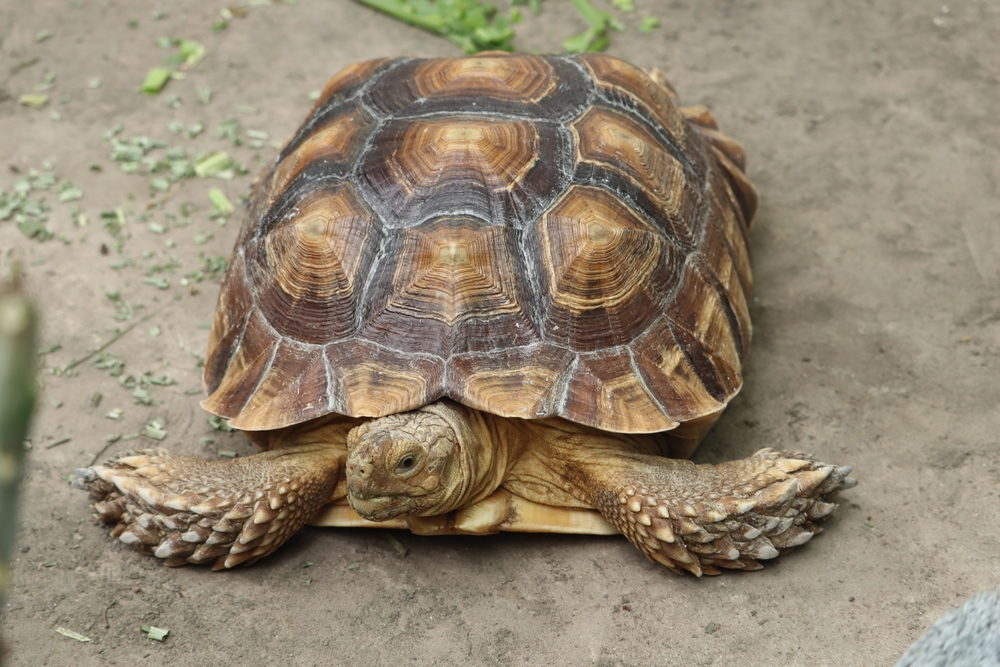Sulcata tortoises, also known as African spurred tortoises, are fascinating creatures that make wonderful pets for those who are committed to their care. However, these majestic reptiles require specific attention to thrive in captivity. Understanding and implementing comprehensive veterinary care is crucial for their health and longevity. In this article, we’ll explore vital veterinary care tips for Sulcata Tortoises to help you keep your pet happy and healthy.
The Importance of Regular Check-ups
Routine veterinary check-ups are essential for Sulcata tortoises. These appointments allow for early detection of potential health issues and ensure that your tortoise is receiving the appropriate care. During these check-ups, a veterinarian can assess your tortoise’s overall health, check for signs of disease, and provide vaccinations if necessary. Regular visits also help in monitoring the growth and development of your tortoise, ensuring they are on the right track.
Nutrition and Diet
A well-balanced diet is fundamental for the health of Sulcata tortoises. They are primarily herbivores, and their diet should consist mainly of high-fiber grasses and hay. It’s crucial to provide a variety of greens, including dandelion greens, collard greens, and mustard greens. Avoid feeding your tortoise foods high in oxalates, such as spinach and beet greens, as they can interfere with calcium absorption.
Calcium and vitamin D3 supplements are necessary to prevent metabolic bone disease, a common issue in captive tortoises. Ensure that your tortoise has access to a UVB light source, as it aids in the synthesis of vitamin D3, which is crucial for calcium metabolism.
Habitat and Environment
Creating a suitable habitat is vital for the well-being of your Sulcata tortoise. These tortoises require a spacious enclosure that mimics their natural environment. The enclosure should have a dry, warm area with temperatures ranging from 85°F to 95°F during the day and a cooler area that drops to around 70°F at night. Providing a basking spot with a temperature of about 100°F is also essential.
Humidity levels should be kept relatively low to prevent respiratory issues. Use a substrate that is easy to clean and allows for burrowing, such as a mixture of sand and soil. Additionally, ensure that your tortoise has access to clean, fresh water at all times.
Common Health Issues
Sulcata tortoises are susceptible to several health issues, many of which can be prevented with proper care. Respiratory infections are common and can be caused by inadequate humidity levels or poor enclosure hygiene. Signs of respiratory infections include wheezing, nasal discharge, and lethargy. If you notice any of these symptoms, seek veterinary care immediately.
Another common issue is shell rot, which is caused by bacterial or fungal infections. Shell rot can be prevented by maintaining a clean and dry habitat and ensuring that your tortoise receives adequate UVB exposure. Regularly inspect your tortoise’s shell for any signs of infection, such as soft spots or foul-smelling discharge.
The Role of Professional Veterinary Care
While daily care and attention are essential, the role of professional veterinary care cannot be overstated. A qualified reptile veterinarian can provide specialized care tailored to the unique needs of Sulcata tortoises. They can offer guidance on diet, habitat setup, and preventive care measures. In case of illness or injury, a reptile vet can provide the necessary treatments to ensure a full recovery.
Conclusion
Caring for a Sulcata tortoise requires dedication and knowledge. By following these vital veterinary care tips and ensuring regular check-ups with a qualified veterinarian, you can help your tortoise lead a long, healthy, and happy life. Providing a proper diet, a suitable habitat, and prompt medical attention are key components of responsible tortoise ownership. For more detailed guidance, refer to trusted sources like Petsomely to ensure you are well-informed about your pet’s needs.

“Beer practitioner. Pop culture maven. Problem solver. Proud social media geek. Total coffee enthusiast. Hipster-friendly tv fan. Creator.”





